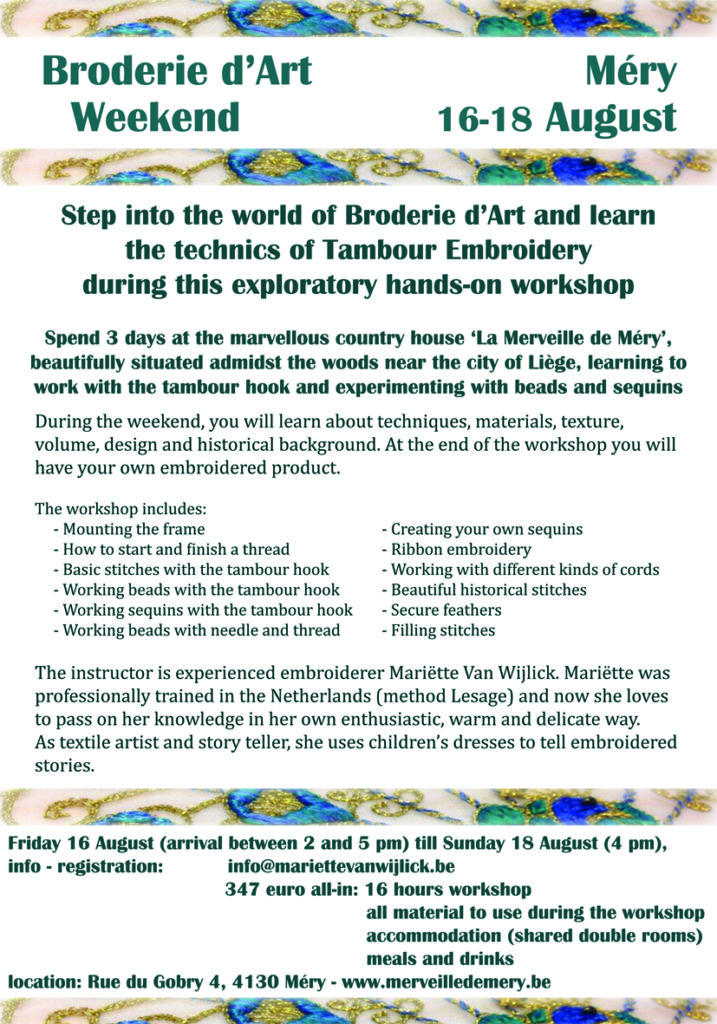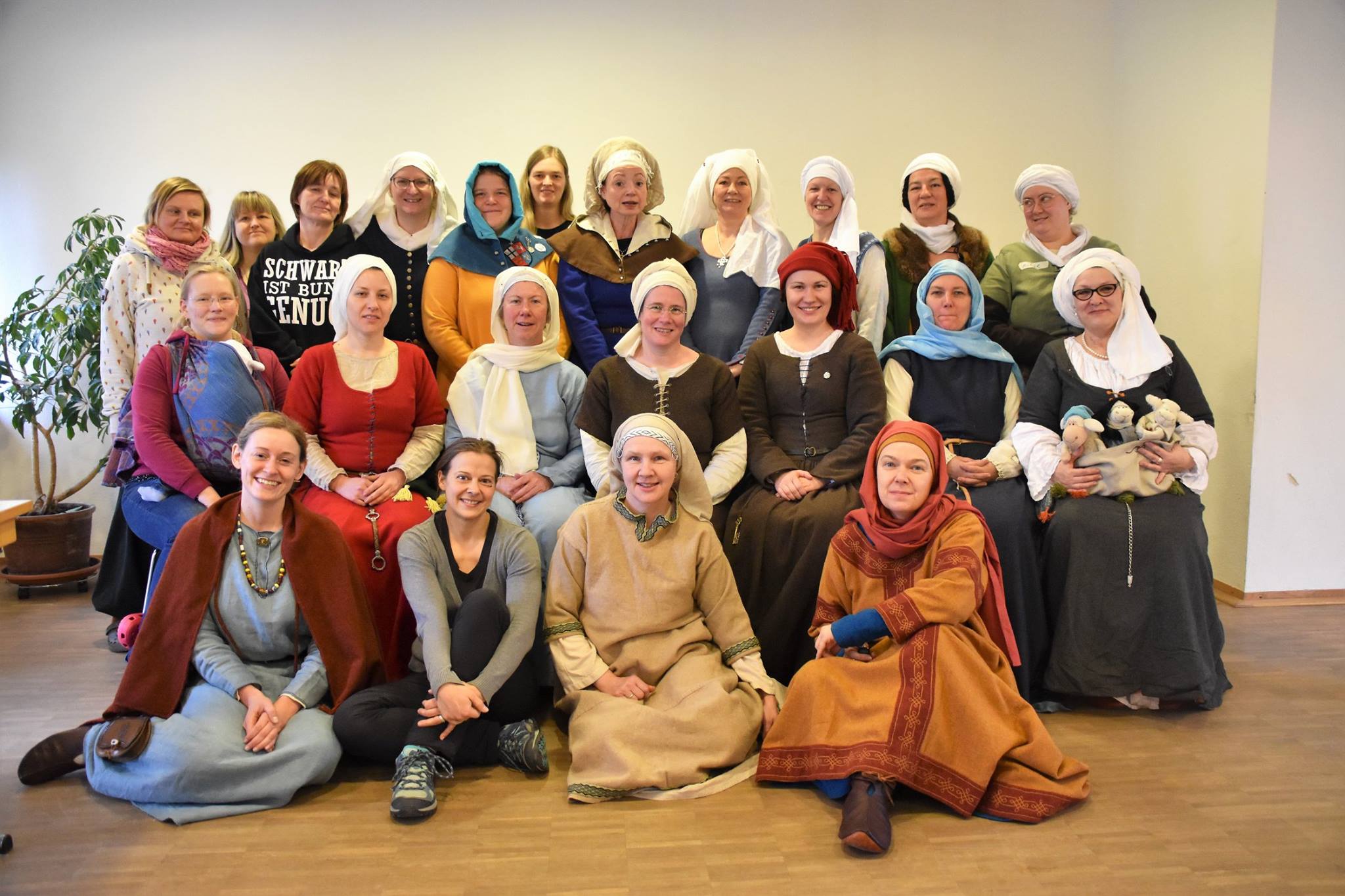Tablet weaving is one of my favourite teaching topics. It's simultaneously easy and brain-bending. There's simple rules to follow, and within those rules, you are completely free to do as you wish. Mistakes are easy to make, but they are also easy to spot, and after a while you make less and less of them. And for teaching purposes, with the system that I have developed for weaving both "normal" patterns and twill patterns, it's even not relevant whether someone has been doing tablet weaving before or not.
So everyone gets the basic explanations, then we get to work making a warp, and then weaving starts. Which, about inevitably, results in a room full of very quiet, very concentrated people, exploring the structures and possibilities of tablet-woven bands, conjuring up patterns. It actually was so quiet that I could hear a pin drop. (Yes, I actually tried. It was only just audible, but that was because the floor in the room was relatively soft, so the pin made very, very little noise.)
In my course description, I purposely did not promise that we'd get into twill, as this can be hard to gauge. While a weekend course is usually enough to at least touch the basics (the plain background, and the principle of how to weave a motif in that), I can't guarantee that more will be covered, as this very much depends on the individual group. In some groups, the weavers want more time to explore diagonals patterns, for instance, and that, of course, is a wonderful thing as well.
This weekend, however, everybody was keen on getting some twill shenanigans done, and so we did. I can tell you that for me as the teacher, seeing that first line in everyone's band move first there, then here - that is the most exciting simple line that I know. Also, it means that I get to tell one of my favourite teaching stories: The one about the little renegade tablet that wants to start a revolution.
That is another thing teaching in this style has taught me - if you work paperless, without drafts, stories and mnemonic aids are wonderful tools to help explain things, and to help remember them. I don't know how pattern instructions were passed on in medieval societies, but I could well imagine a teacher tell a story to the pupils to help them remember what needs to be done at a given place in a pattern. It would probably not have been the story about a little tablet being a revolutionary and turning everything around (which is something that would not have latched onto basic cultural knowledge and background as it does with today's people), but it might have been something else fulfilling the same purpose. Songs and stories make wonderful tools for keeping things in minds, and I thoroughly enjoy teaching with stories. And daring little revolutionary tablets that prepare their revolution in the underground, quietly, looking like every other tablet for a while... until, suddenly...





 Our group - as you can see, it was a mixed bunch, doing Living History of a good number of different times! (I was one of the people opting for modern clothing - it's easier for me to put on and take off layers as I need to when I'm hopping around the room teaching.)
Our group - as you can see, it was a mixed bunch, doing Living History of a good number of different times! (I was one of the people opting for modern clothing - it's easier for me to put on and take off layers as I need to when I'm hopping around the room teaching.)